The property market in the UK has experienced a rollercoaster of highs and lows over the last couple of years. In this article, we explore how customers are using new PropTech (or property technology) and how this affected their property search.

In this article
- Only 16% have done a VR house tour, but 88% would if they could
- Property apps are popular, but only used for limited functions
- Email and phone are still the main communication channels when buying or renting
- 65% say digital signatures are on a par with pen and paper
- Interactive maps: low usage but high interest for this new form of PropTech
- How to make the most of PropTech
- In summary
The UK property market has not been immune to the effects of the pandemic. Lockdowns caused a huge drop in sales in April 2020 —a long-term low according to UK government data. Just over a year later, they had climbed to almost five times that level.
All the while, the market has had to handle a surge in people looking for a new place to live while navigating social distancing restrictions. The response has leaned heavily on estate agency technology (which falls under the broader category of ‘ PropTech’) and we wanted to find out just how house hunters have adapted to the changes.
We surveyed more than 1,000 people in January 2022 who bought or started renting a house in the past three years. We wanted to find out about their experience and, in particular, what PropTech they used when searching for, buying, or renting their new home. Scroll down to the bottom of the article for a full survey methodology.
Be sure to check out part one of this series, where we explored how the housing market and house-hunting have changed during the pandemic.
Only 16% have done a VR house tour, but 88% would if they could
In the previous article in this series, we noted that virtual tours had become a popular form of PropTech during the pandemic, allowing house hunters to view properties remotely. These tours usually use a live or pre-recorded video, but some agencies have begun to use more immersive VR and AR technology.
Did you know? Virtual reality (VR) allows potential buyers or renters to go through a virtual tour of the property as if they were there in person. Viewers usually use a head-mounted device that generates realistic three-dimensional images and sounds of a real-world location.
Augmented reality (AR) tours use an app and camera on a smartphone to superimpose digital visual elements over a live image of the home. They allow viewers to visualise how an unbuilt property will look when it’s finished or to see if furniture would fit in a room.
Interest in this technology is high among consumers. 88% of the people we surveyed said they would take a virtual reality tour of a house or apartment they were interested in if it were available. However, VR doesn’t appear to be widely used by agencies yet —only 16% of those interested actually did a VR tour when searching for a property in the previous three years.
Initial feedback is positive. Of those who did a VR tour, 97% said it was helpful, and respondents said that VR tours make it significantly easier for them to make decisions about whether to make further viewings or offers on a property.
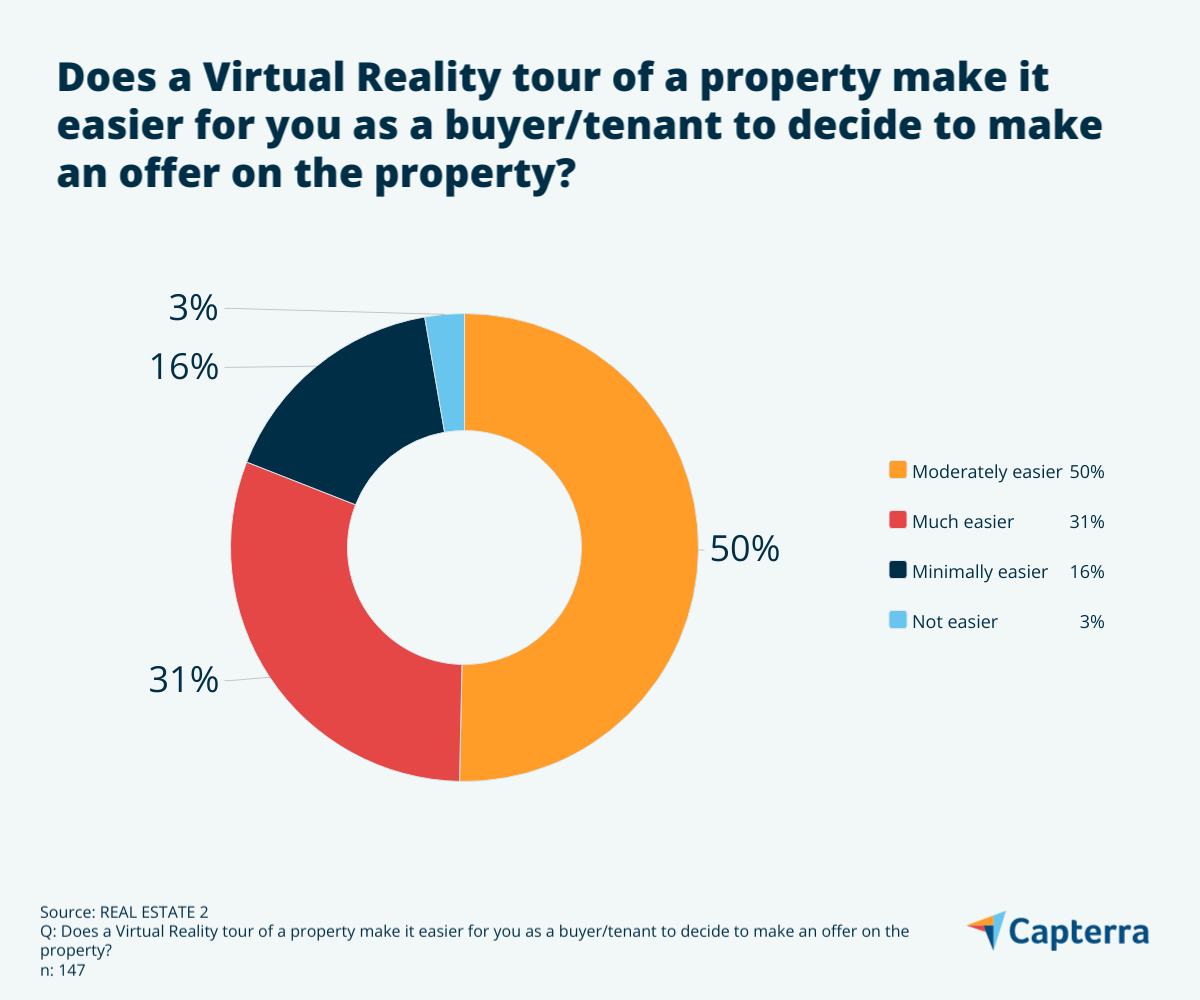
House hunters who did AR tours said that the technology had a similar effect on their decision-making about buying or renting.
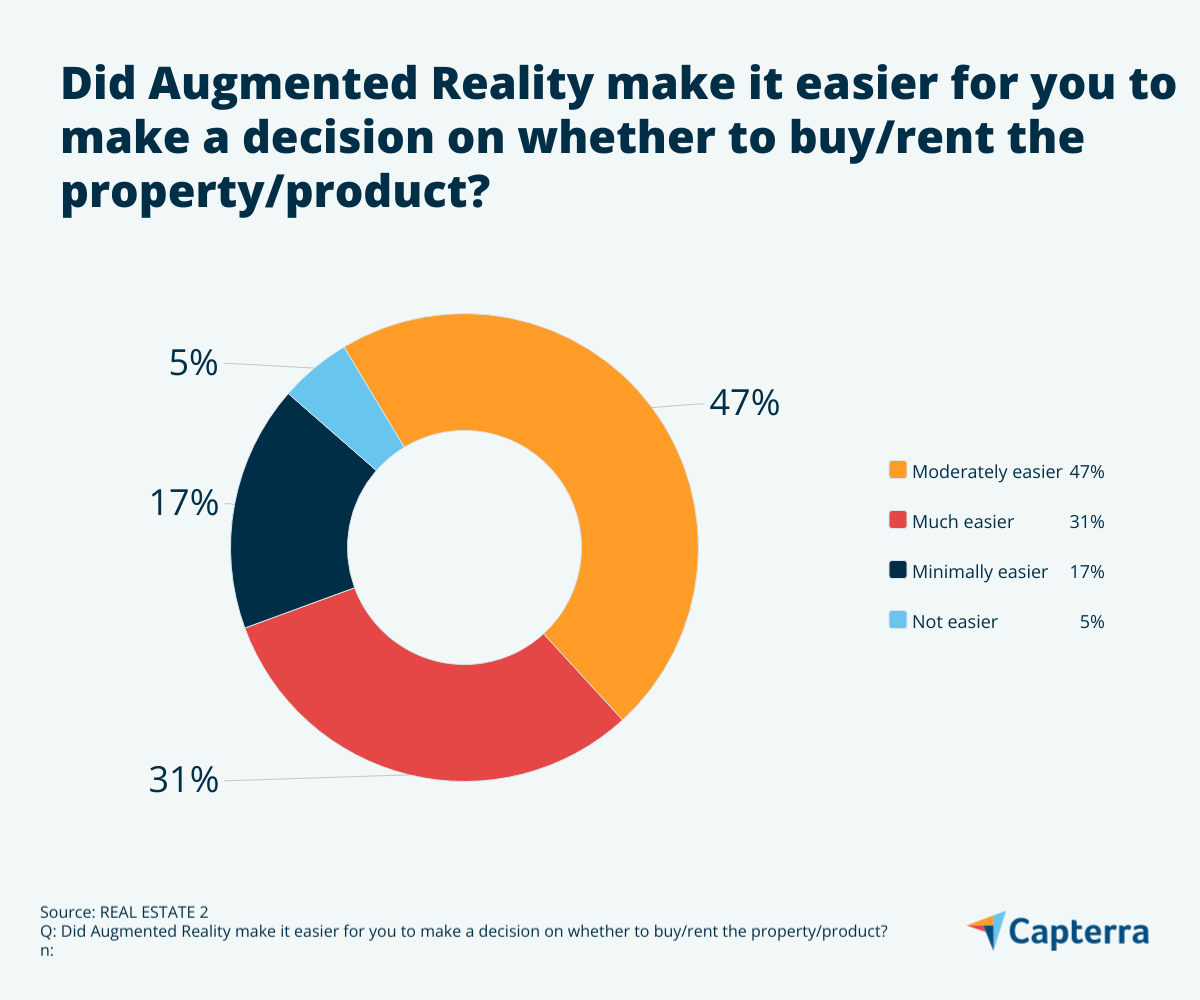
Property apps are popular, but only used for limited functions
Estate agencies and property portals have made buying and selling property easier via mobile apps. These tools are popular among buyers and renters, with 11% of the people we surveyed using an app provided by a physical estate agency, and 59% using one from an online agency or portal.
The top benefits, according to respondents who used an app, are how user-friendly the apps are on a phone (73%), the fact that they are easier to navigate than a regular website (54%), and that they give push notifications about new properties or price reductions (40%).
However, few people choose to use their app to communicate with agents or sellers. Only 5% of total house-hunters surveyed said that an app would be their preferred method of communication, and even fewer (2%) said that it actually was their main method of communication during the buying or rental process.
Email and phone are still the main communication channels when buying or renting
Even in today’s digital era, buyers and renters prefer more traditional communication channels. According to our survey, phone, email, and in-person meetings were the three most preferred forms of communication, with phone and email the two most widely used in practice.
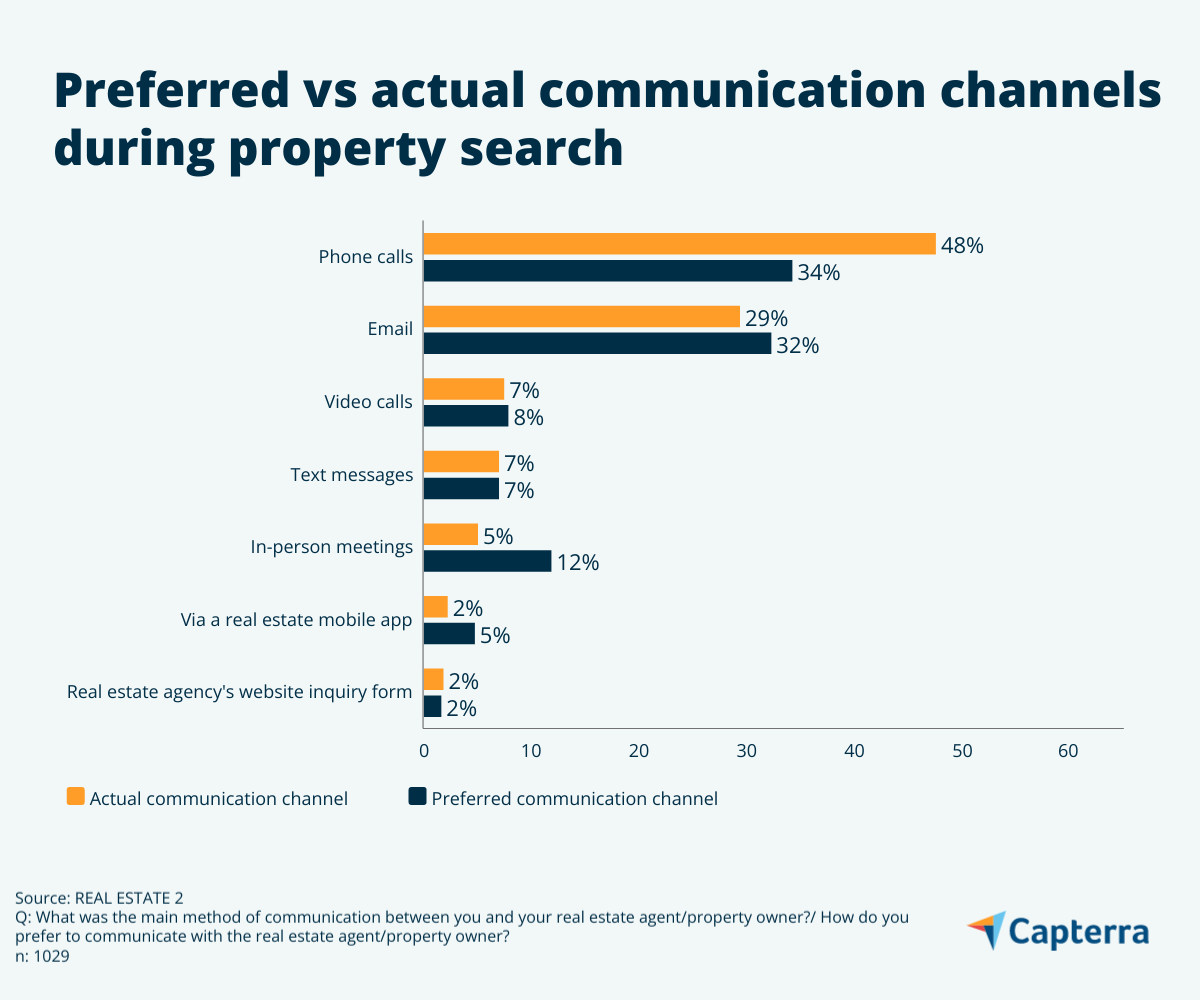
Live chat functionality, whether powered by artificial intelligence or a human advisor, proved popular. 38% said they had used it, and 3% said they weren’t sure whether they actually chatted with a real person or a robot.
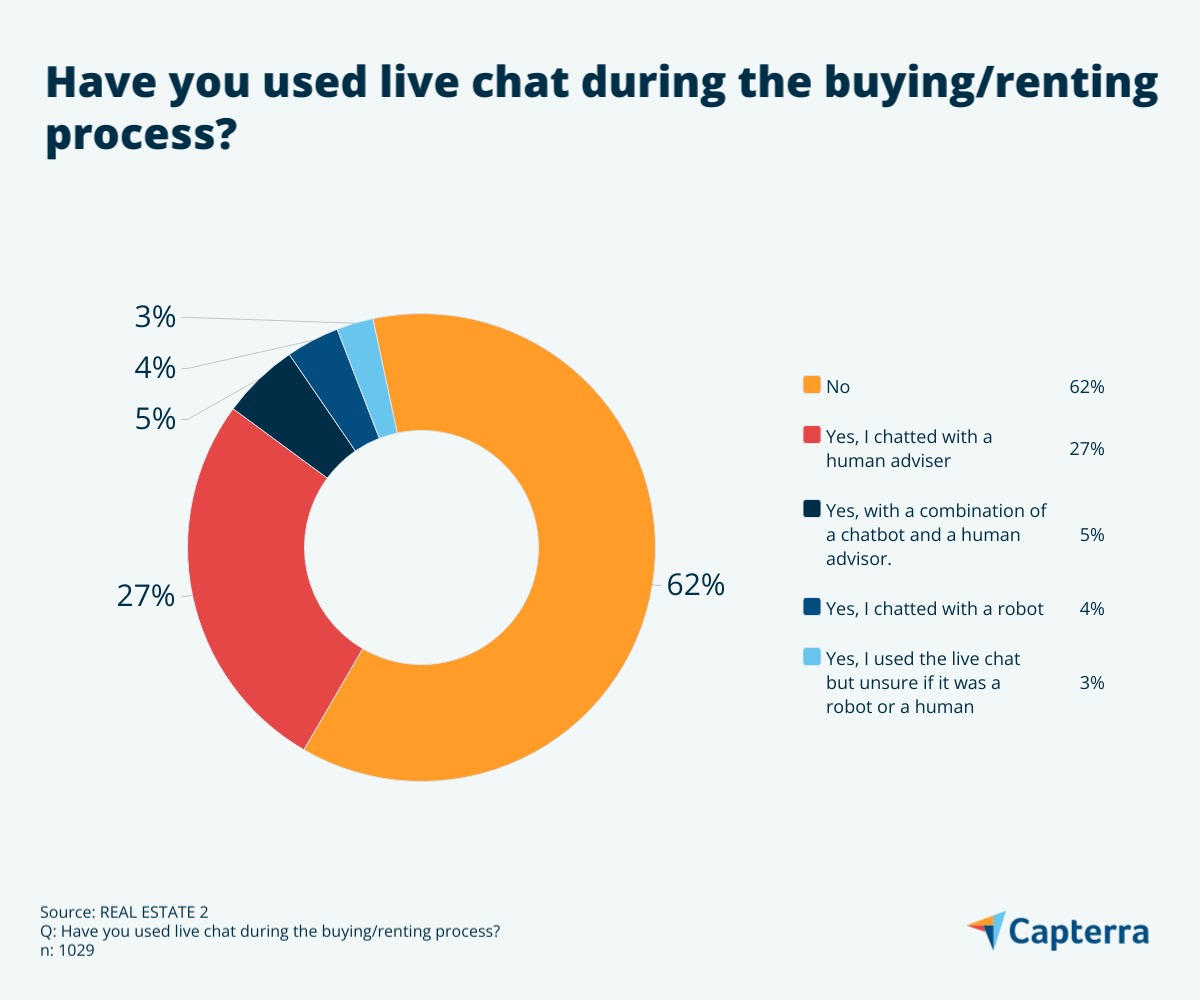
65% say digital signatures are on a par with pen and paper
Although being able to sign documents remotely proved invaluable during the pandemic, digital signature software is not new. Respondents to our survey showed that they were broadly comfortable using such tools, although there are some concerns about personal data use.
25% of the buyers and renters we surveyed said they don’t mind whether they use a pen and paper or digital signature for real estate transactions, while 34% actually prefer digital methods, which indicates that 59% overall are happy to use digital signatures.
61% of respondents used digital signatures for at least some of the documentation related to their home purchase or rental in the previous three years. Of the remainder who didn’t, the majority (33% of total survey respondents) said this was because it wasn’t possible at the time. This indicates that adoption among estate agencies is far from universal.
Adding support to the notion that the technology is catching on, most people in our survey think that digital signatures have the same or higher value than pen-and-paper ones.
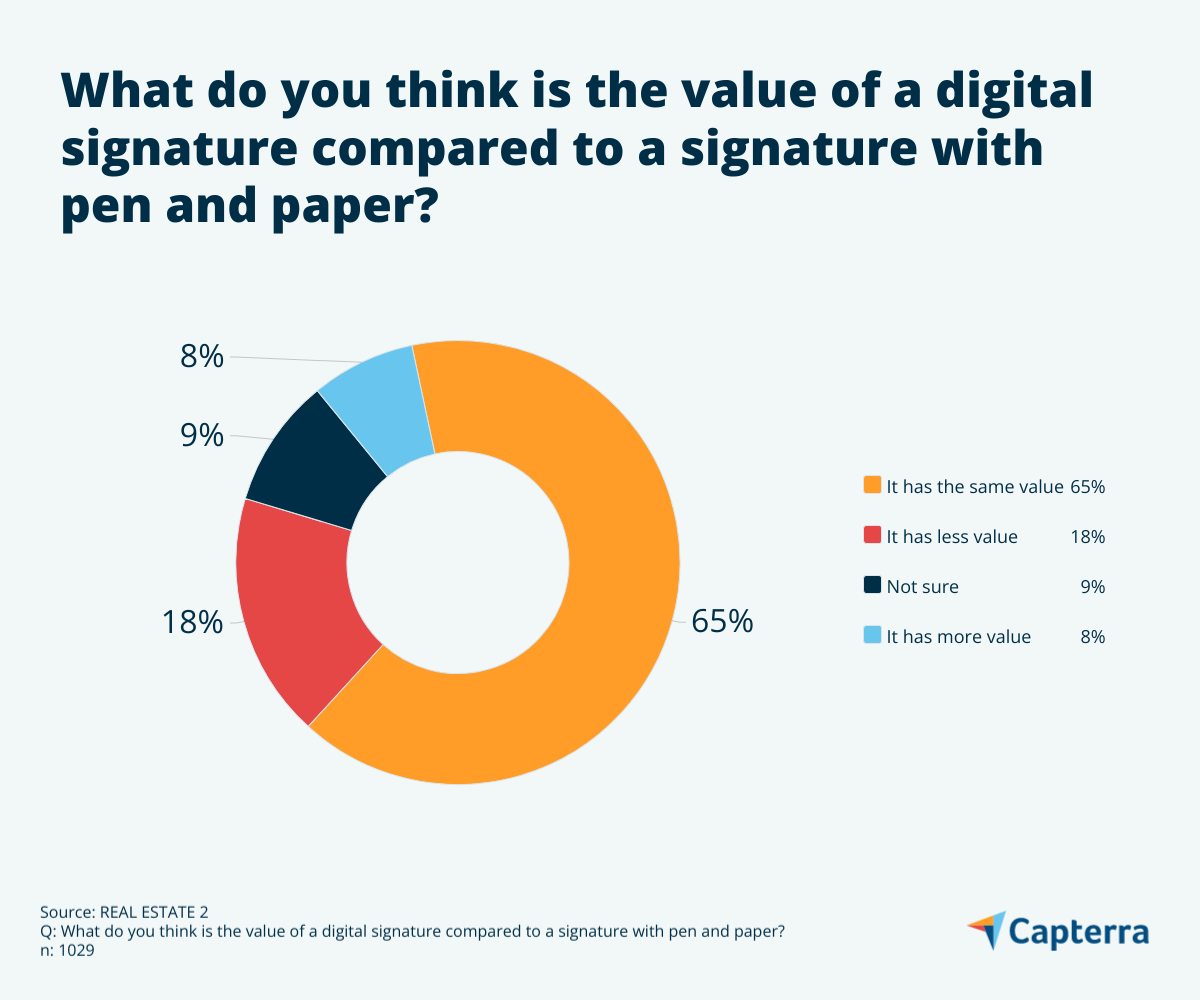
However, some misgivings remain about digital signatures for property transactions. 12% of survey respondents said they were “extremely concerned” about the safety of their personal data when signing digitally, and a further 45% were “somewhat” concerned. Despite this, only 6% of respondents overall refused to sign documents digitally during their rental or purchase process.
Interactive maps: low usage but high interest for this new form of PropTech
97% of the people we surveyed said that interactive maps would be helpful during their property search (52% said ‘very helpful’, 45% ‘somewhat helpful’). Only 19% of respondents said they have used an interactive map before when searching for a property, while 72% haven’t, but would be interested in using one.
Rather than being a tool for finding properties in an area, most respondents said that interactive maps would be most useful for exploring the surrounding area.
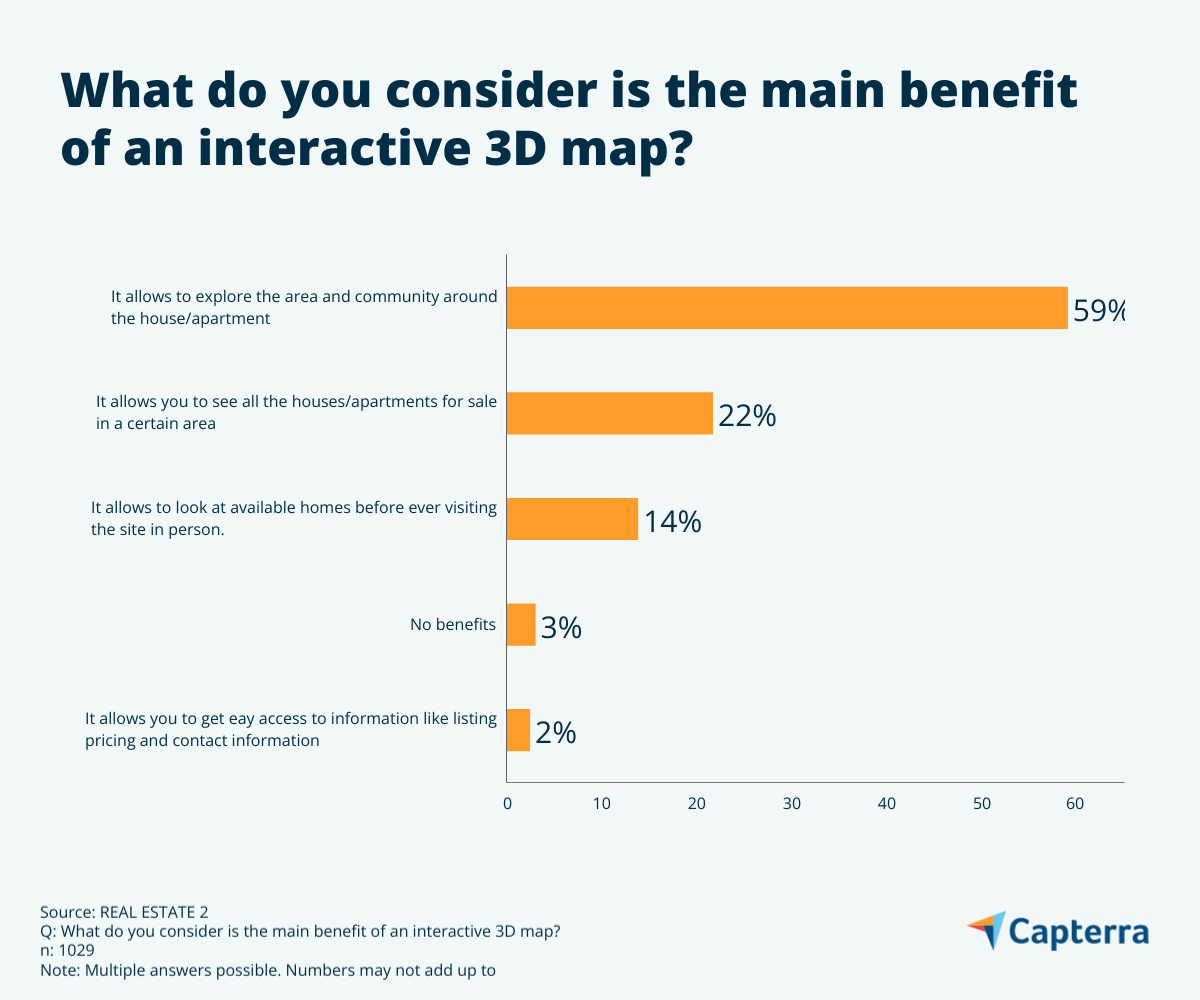
How to make the most of PropTech
Now we know more about how estate agencies and consumers have taken to PropTech in the past three years, there are some important pointers for any company in the industry looking to implement these tools:
- Understand what house hunters want. Use the information from our survey as a guide, but ask your own customers and employees what technology would be useful in the selling, buying, or rental processes where you operate. All technology has a cost, and you don’t want to spend money on tools that people neither want nor use.
- Ensure you have the resources to back up your technology. Before setting up tools like live chat or VR tours, make sure you have the staff who can be on hand to answer queries or the necessary VR headsets and cameras. If you don’t, do you have the budget to hire people or buy the equipment?
- Know your local and national regulations. When looking at solutions covering potentially sensitive areas like digital signatures, make sure you can address client concerns about data security and demonstrate your compliance with relevant regulations like GDPR.
In summary
- VR and AR tours are a form of PropTech that attract high interest and receive positive reviews, but their use is currently limited.
- Nearly 3 in 4 use property apps, but rarely for communication with sellers or agents.
- Email and phone, on the other hand, remain the most popular channels for communication.
- Most are happy to use digital signatures and regard them as highly as pen and paper.
Methodology:
To collect the data for this report, we conducted an online survey on UK real estate from 27th January 2022 to 9th February 2022. Of the total respondents, we were able to identify 1,029 UK respondents that fit within our criteria:
- UK resident.
- Over 18 years of age.
- Bought or started to rent a house or flat within the last 3 years.
